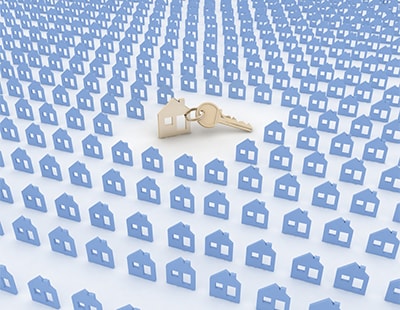
Sellers should try to instruct estate agents with the largest local share of the market, even if that means ignoring well-known corporate firms, according to consumer group the HomeOwners’ Alliance.
The group claims that analysis of sales patterns suggest that when choosing a company to get the best price in a sale, those agents with a larger share of their local housing market are more likely to sell a property - and at closer to the asking price - than those with a smaller market share.
The HOA claims that locally-dominant agents (the top third in terms of market share in their area), have a 61 per cent success rate of selling properties on their books, compared to just 53 per cent for agents in the bottom third.
Agents with more properties are also more likely to achieve a higher value deal, achieving an average of 97 per cent of the asking price, compared to 86 per cent among those with fewer on their books.
The data shows that local market share is a better indicator of success than a well-known brand - and, critically, it says there is no evidence to suggest that national chains perform better than local agents.
So for example the HOA says that at Tonbridge in Kent, for example, independent agency Bracketts has 29 per cent of the local market and a sales success rate of 68 per cent, usually achieving the asking price.
In Burnham Crouch, Essex, the agency Church & Hawes has 33 per cent of the local market and has a sales success rate of 65 per cent, usually achieving 98 per cent of the asking price.
The figures are based on 65,000 enquiries to the HOA between June and November 2016.
“Home owners are more likely to successfully sell their home, and get the price they want, if they go to agents with more clout in the local market. This does not mean that national chains are better than independent agents, but rather that the busier the local agent the better it performs” says HOA chief executive Paula Higgins.












.png)


.jpg)
.jpg)





%20-%20IMAGE%20Client%20Accounting%20%E2%80%93%20what%20are%20your%20options.jpg)


.png)
.png)
.png)
%20(002).png)






%20(002).jpg)



.png)




Join the conversation
Jump to latest comment and add your reply
Interesting, but how do measure market share? Number of properties for sale- no! Any agent can overvalue and underperform to increase their board count and create a perception of having the largest market share. Surely its about turning the stock and sstc pipeline as overall % of total stock. Measuring the churn is the better way to judge performance rather than number of properties for sale
A large market share could be cheap fees and crap service, lots of properties on your books will also drive down service even more unless you are employing more staff to keep up with it. The statement "Agents with more properties are also more likely to achieve a higher value deal," is total rubbish - what basis is this on?
You don't have that many properties by selling them quickly. Also, 97% of what asking price ? the original or the last one it was reduced to ?
Usual bog standard use of statistics which is becoming more and more a way to gain media coverage for one's organisation. 33% success in the local market is useless if 99% of those properties are of a different type to the one you want to sell. Also, I challenge Brackets to prove that they usually achieve the asking price on 68% of the properties they sell. "Usually" must mean at least 90% of all those homes or trading standards will be after them. According to these figures hat's coming on for a third of all properties in Tonbridge selling at the asking price!
Forget the last sentence referring to a third. Message decided to send itself when sentence was meant to delete!!
Please login to comment